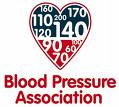
US elder have better cognitive function compared to their counterparts of the same age in the UK, according to a joint UK-US study.
The researchers said that mental function of the US elder was better despite the greater incidence of cardiovascular disease risk factors, which was managed better in the US with drugs.
They said: “Cognitive function is a key determinant of independence and quality of life among older adults. Compared to adults in England, US adults have a greater prevalence of cardiovascular risk factors and disease that may lead to poorer cognitive function.
“We compared cognitive performance of older adults in the US and England, and sought to identify sociodemographic and medical factors associated with differences in cognitive function between the two countries.”
The esearcher was carried out at Department of Internal Medicine, University of Michigan, Ann Arbor, MI, USA, Department of Public Health and Primary Care, University of Cambridge, Cambridge,UK; Epidemiology and Public Health, Peninsula Medical School, Exeter, UK; Institute for Social Research, University of Michigan, Ann Arbor, MI, USA Department of Epidemiology, University of Iowa, Iowa City, IA, USA and the Department of Psychiatry, University of Cambridge, Cambridge, UK.
They studied 13,566 ethnic white individuals over the age of 60, beginning in 2002.
They found that adults in the UK were economically poorer and suffered more from depression than the US adults, where more money is spent on healthcare and also managing symptoms associated with impaired cognitive function, such as high-blood pressure, with drugs. US adults were also better educated.
The researchers concluded: “We found that despite a higher prevalence of cardiovascular risks and cardiovascular disease among older US adults, they performed significantly better than their English counterparts on tests of memory, suggesting an advantage in cognitive health in the United States.
“While we were unable to confidently identify thecause or causes of this US advantage, higher levels of education and wealth, lower levels of depressive symptoms, and more aggressive treatment of cardiovascular risks
such as hypertension, may be important contributing factors. Given the growing number of older adults worldwide, future cross-national studies aimed at identifying the medical and social factors that might prevent or delay cognitive decline in older adultswould make important and valuable contributions to public health.
Read the full study at Full Paper

